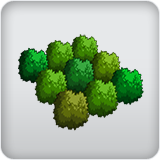Valentine's Day Terrarium Workshop
Register Now
Height: 18 inches
Spacing: 10 inches
Sunlight:


Hardiness Zone: 4a
Other Names: Wood Poppy, Poppywort
Description:
This native poppy features stunning cupped yellow flowers from mid-spring on; best grown in medium to wet, humusy soils in part to full shade; excellent for naturalizing woodland areas, or along streams or ponds
Ornamental Features
Celandine Poppy has masses of beautiful yellow cup-shaped flowers held atop the stems from mid to late spring, which are most effective when planted in groupings. Its lobed leaves remain bluish-green in color with curious silver undersides throughout the season.
Landscape Attributes
Celandine Poppy is an herbaceous perennial with an upright spreading habit of growth. Its medium texture blends into the garden, but can always be balanced by a couple of finer or coarser plants for an effective composition.
This plant will require occasional maintenance and upkeep, and is best cleaned up in early spring before it resumes active growth for the season. It has no significant negative characteristics.
Celandine Poppy is recommended for the following landscape applications;
- Mass Planting
- General Garden Use
- Naturalizing And Woodland Gardens
Planting & Growing
Celandine Poppy will grow to be about 18 inches tall at maturity, with a spread of 12 inches. When grown in masses or used as a bedding plant, individual plants should be spaced approximately 10 inches apart. It grows at a fast rate, and under ideal conditions can be expected to live for approximately 5 years. As an herbaceous perennial, this plant will usually die back to the crown each winter, and will regrow from the base each spring. Be careful not to disturb the crown in late winter when it may not be readily seen!
This plant does best in partial shade to full shade. Keep it well away from hot, dry locations that receive direct afternoon sun or which get reflected sunlight, such as against the south side of a white wall. It is quite adaptable, prefering to grow in average to wet conditions, and will even tolerate some standing water. It may require supplemental watering during periods of drought or extended heat. It is not particular as to soil pH, but grows best in rich soils. It is somewhat tolerant of urban pollution. This species is native to parts of North America.


 Characteristics
Characteristics


 Applications
Applications
 Features & Attributes
Features & Attributes